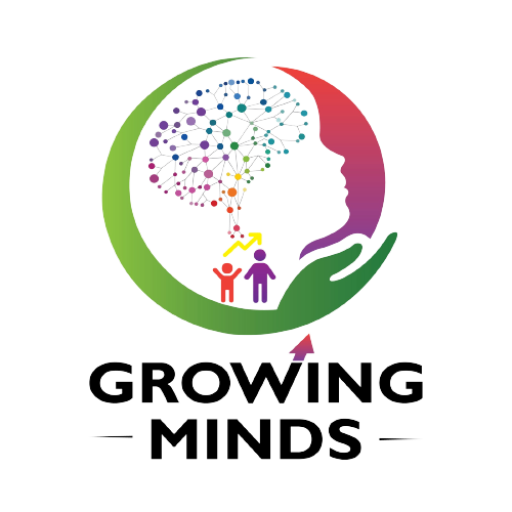
Navigating Thanksgiving: Mental Health Toolkit from Growing Minds Mental Health Services
Thanksgiving is often envisioned as a time of perfect food, family, and gratitude. But beneath the warm glow of the holidays, many people experience a significant surge of emotions that can put unexpected strain on their thanksgiving mental health and well-being.
At Growing Minds Mental Health Services, we understand that holidays often amplify the existing complexities of relationships and expectations. It’s not the food or the gratitude that causes stress—it’s the dynamics that surround them.
To help you move through this popular holiday with greater ease, we’ve compiled essential tips to build your personal Thanksgiving Mental Health Toolkit.
Understanding Common Holiday Mental Health Challenges
Knowing what to anticipate is the first step toward preparing for it. While every family and gathering is unique, here are the most frequent mental health challenges we see arise during the Thanksgiving season:
- Family Dynamics and Relationship Stress: Past conflicts, difficult relatives, or the pressure to conform and manage the group’s emotional atmosphere can resurface. This applies whether you are with biological family, chosen family, or friends.
- Social Anxiety and Overwhelm: Large gatherings or intense socialization, especially with people who cause discomfort or who you don’t typically see, can lead to significant social anxiety and sensory overload.
- Grief and Loneliness: The holiday focus on “loved ones” can keenly highlight the absence of those who have passed away or are physically far away, intensifying feelings of grief and loneliness.
- Food-Related Stressors: Anxiety around food is common, whether due to navigating specific dietary needs or allergies in a mixed company, or struggling with emotional eating habits triggered by stress and the abundance of available food.
- Financial Pressures: The proximity of Black Friday and the rising cost of hosting can create significant financial anxiety, compounding the emotional stressors of the holiday itself.
Building Your Thanksgiving Mental Health Toolkit
Preparation is key to feeling grounded and in control during the busy holiday season. Use these practical tools to proactively manage potential challenges:
1. Establish and Uphold Clear Boundaries
It is perfectly acceptable and necessary to prioritize your well-being.
- Practice Saying “No”: Give yourself permission to limit time spent in situations or with people that you find overly challenging or uncomfortable.
- Graceful Exits and Redirection: If a conversation becomes overwhelming or inappropriate, you have the right to change the subject, communicate a boundary (e.g., “Let’s discuss another topic”), or step away briefly (e.g., “Excuse me, I need to get some water” or “I’ll be right back, I need to use the restroom”).
2. Utilize Mindfulness and Grounding Techniques
Use intentional practices to stay present and calm when stress begins to build.
- Take Micro-Breaks: Step outside for a moment of fresh air or take a few minutes in a quiet room for a mental pause.
- Grounding Exercises: Engage your senses to anchor yourself. Try focused breathing exercises or the 5-4-3-2-1 technique (identifying five things you can see, four you can touch, three you can hear, two you can smell, and one you can taste).
3. Manage Emotional Eating with Mindful Consumption
Shift your relationship with the holiday meal from consumption to appreciation.
- Tune In to Your Body: Engage in mindful eating by listening closely to your hunger and fullness cues.
- Slow Down: Chew your food slowly, savor the flavors, and take sips of water or a full breath between bites. This gives your body time to register fullness and reduces the likelihood of stress-driven overeating.
- Check In with Your Feelings: Pause before eating and ask yourself: Am I eating because I’m hungry, or because I’m anxious/stressed? Addressing the feeling is the best way to manage the urge.
4. Practical Self-Care: Prioritize Fundamentals
Do not let holiday excitement displace your healthy habits.
- Prioritize the Basics: Ensure you maintain adequate sleep, hydration, and regular movement (even a short walk helps!).
- Schedule Downtime: Book time before and after the holiday event for low-effort activities to decompress and recharge.
- Authentic Gratitude: If sharing gratitude in a large group feels forced or anxiety-provoking, don’t do it. Instead, share your reflections in a journal or with a trusted, safe person.
When to Seek Extra Support
If Thanksgiving causes intense anxiety, depression, or triggers unhealthy coping mechanisms, it’s a clear signal to reach out for help.
Signs you may need professional support include:
- Persistent and overwhelming stress, anxiety, or depression that interferes with daily function.
- New or increased reliance on alcohol or substances to cope.
- A return to or intensification of disordered eating patterns.
Your mental health is a priority. If you feel your toolkit isn’t enough, please reach out to your therapist for additional support during this time. We are here to help you navigate the season’s complexities.
If you are experiencing a crisis, please utilize the 988 Suicide & Crisis Lifeline by calling or texting 988.
FAQ: Why does my mental health feel worse around Thanksgiving?
The holiday brings multiple potential stressors: difficult family dynamics, amplified feelings of grief or loneliness, and a hyper-focus on food. Additionally, reduced sunlight during this time of year can contribute to Seasonal Affective Disorder (SAD). If you are experiencing concerning symptoms, connecting with your mental health provider at Growing Minds can offer valuable guidance and support.
Need Extra Support This Season? Connect with us.
If you find that holiday stress is overwhelming, our experts are here for you.
WE OFFER FREE 30-MINUTE MENTAL WELLNESS CHECK-IN
Take a moment for yourself. Fill out this form today to claim a complimentary 30-minute session with a licensed professional at Growing Minds Mental Health Services to assess your stress levels and discuss personalized coping strategies for the holidays.
Contact us today to schedule your appointment and start your journey toward a calmer, more focused holiday season.
This article is for informational purposes only and is not a substitute for professional medical advice, diagnosis, or treatment. Always seek the advice of a qualified healthcare provider with any questions you may have regarding a medical condition.



